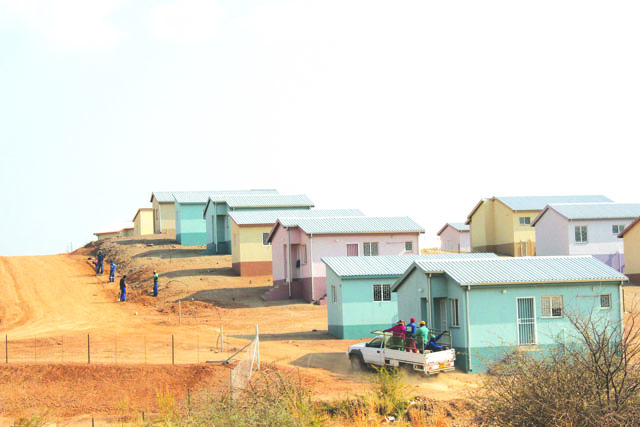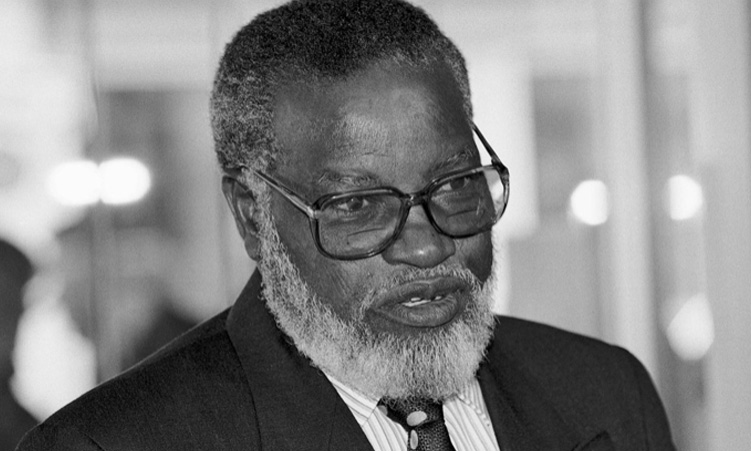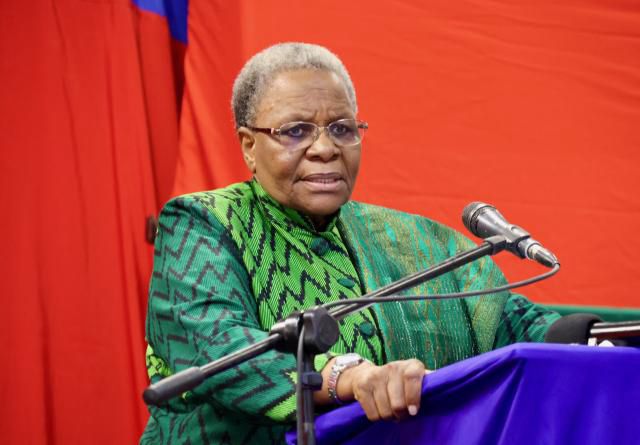THE Government plans to construct about 9 000 houses through the National Housing Enterprise (NHE) at a cost of N$2,7 billion in the next 15 months under its new programme aimed at reducing the housing backlog of over 100 000.
This was said by the Minister of Regional and Local Government and Housing, Charles Namoloh yesterday, during a meeting with regional and local council officials including most of the governors where he briefed them about the national housing plan.
He said the mass housing plan will inject N$45 billion into the construction of 185 000 houses over the next 17 years.
Government plans to inject N$2,7 billion until 2014 and N$2,5 billion for each year thereafter until 2030.
NHE which has built 13 295 houses over the past 22 years will be the administrator of the mass housing programme.
President Hifikepunye Pohamba, who is heading a Cabinet committee on mass housing development, has made the scheme one of the major projects he wants to see progressing before his tenure ends and he will launch it next month.
Namoloh said the mass housing development programme will be executed in two phases.
The first phase is to be implemented during the “first two years 2013/14 and 2014/15, which constitutes pilot projects targeting capital centres in the 14 regions”.
“Thereafter, the programme will be rolled out to other localities, during the second phase which will run up to 2030,” he said.
Preliminary information provided by NHE Chief Executive Officer Vincent Hailulu yesterday showed how much each town will get for the first phase which will kick off next month.
Windhoek is expected to get about N$385 million, Rundu N$195 million, Oshakati N$240 million, Keetmanshoop N$179 million, Otjiwarongo N$192 million, Katima Mulilo N$192 million while Opuwo will get N$160 million.
Mariental is expected to get N$130 million, Eenhana N$178 million, Omuthiya N$195 million and Gobabis N$178 million while Swakopmund will receive N$260 million.
The presentation by Hailulu was halted at some point after officials questioned why Walvis Bay was made the main town for Erongo Region.
Namoloh decided on the spot that Swakopmund should replace Walvis Bay.
The allocation of funds to the town of Nkurenkuru in the new Kavango West is yet to be decided.
Hailulu said 50 000 houses in informal settlements are set to be upgraded in the next 17 years.
According to Namoloh, part of the plan is also to build offices and houses for governors in each region. Provision of accommodation facilities for visiting government officials is also part of the housing scheme.
Namoloh who spoke for more than an hour said financing of this programme will be done through government grants to be channelled through his ministry, local authorities and NHE.
Other sources of finance are public-private partnerships, debt financing and household saving groups such as the Shack Dwellers Federation of Namibia.
The minister was, however, irked by the lack of feedback from regional councils and their governors. Namoloh said he wrote them letters asking for information on available land for the programme in their respective region.
“Only five or six responded. We will leave you out, and don’t complain,” he said.
He said the national ministerial committee will exercise its discretion to identify other localities for programme implementation during the first phase, should some regions show that they are not ready.
“This is critical to allow quick programme implementation in all the regions where serviced land is available,” Namoloh added.
He also announced that ‘social houses’ will be build for renting out to residents.
The minister warned his fellow politicians not to use the mass housing programme as a means to campaign for their political parties.
He warned his officials at that meeting: “Money is to be used for building houses and not to buy Mercedes Benz.”
He said a procurement and tendering system will be used to source the services of companies and entities that will be involved in the implementation of the programme.
“The aim is to have a transparent way and mechanisms of dealing with procurement without subjecting the programme to cumbersome and bureaucratic process.
“Hence a dual tendering system will be applicable, involving a tendering system of NHE as well as the decentralized procurement system of the government,” he added.
Stay informed with The Namibian – your source for credible journalism. Get in-depth reporting and opinions for
only N$85 a month. Invest in journalism, invest in democracy –
Subscribe Now!










